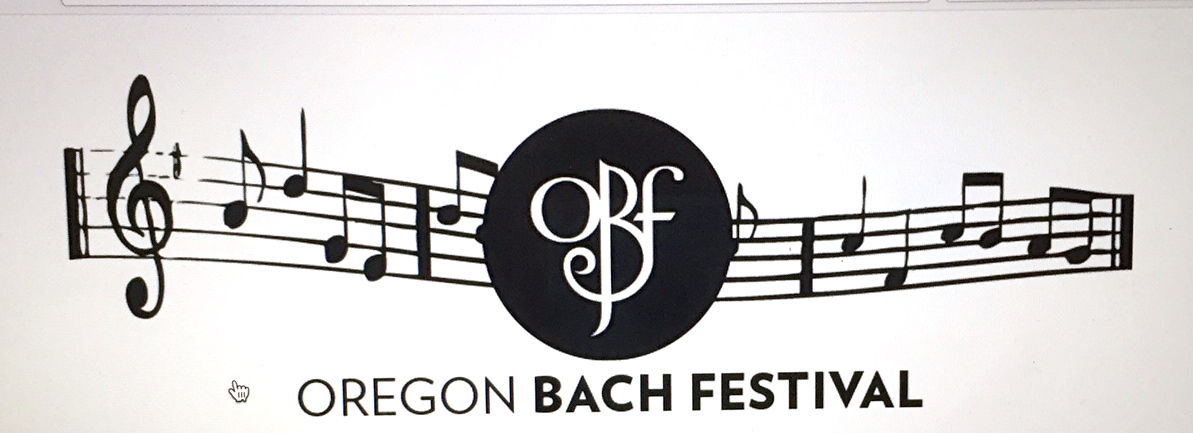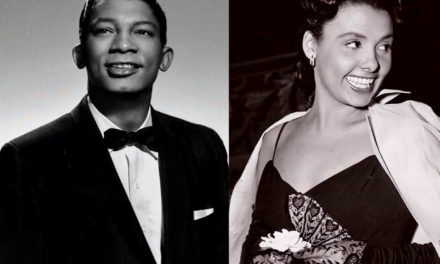By Randi Bjornstad
The Oregon Bach Festival has announced the three finalists for its artistic director position, and one of those names — Miguel Harth-Bedoya — likely will be especially familiar to music lovers in the Eugene area.
Peruvian-born Harth-Bedoya served as conductor of the Eugene Symphony from 1996 to 2002 and since then, like many other top-tier musical conductors, has hopscotched the nation and the globe, conducting major symphony orchestras in Fort Worth, Chicago, Boston, Cleveland, Philadelphia, New York, Atlanta, Baltimore and Cleveland and internationally in Finland, Germany, New Zealand, France, Scotland, Spain, Australia, and Norway.
Beyond his musical pursuits, Harth-Bedoya has made zero-waste living a priority. Four years ago, while living in Forth Worth, Texas, where he holds the post of music director of the Fort Worth Symphony Orchestra, he co-founded Cowboy Compost, a business dedicated to turning leftover food scraps and food waste into compost.
The two other finalists also are well-known in rarefied musical circles, including Grammy-winning choral conductor Craig Hella Johnson and composer and early music specialist Julian Wachner.
Johnson also has appeared in the past at the Oregon Bach Festival and will make another appearance in Eugene in May at the Hult Center for the Performing Arts, when he conducts Conspirare — the Austin, Texas, choral group he co-founded — in Considering Matthew Shepard, a concert-length work Johnson composed and dedicated to the Shepard, a young gay man who was murdered in Wyoming in 1998.
Johnson’s work with Conspirare has resulted in seven Grammy nominations and a Grammy Award for a choral performance album called The Sacred Spirit of Russia. He also has been artistic director of the Victoria Bach Festival in Texas and has led the well-known male chorus, Chanticleer, in San Francisco.
For his part, Wachner is a composer, conductor, keyboard player and expert in early music as well as championing the performance of newly commissioned musical works. He has been director of music and arts at Trinity Church Wall Street in New York City, which included inaugurating a popular weekly lecture and performance series titled Bach at One, and he has a long list of guest-conducting appearances throughout North America.
Wachner also has been involved in the development and presentation of three Pulitzer Prize-winning compositions in recent years: Julia Wolfe’s Anthracite Fields in 2015; Angel’s Bone by Du Yun in 2017; and in 2019, Ellen Reid’s Prism.
Hiring a new artistic director may be something of a healing effort for the Oregon Bach Festival, which last had someone in the role in mid-2017, when the wunderkind Matthew Halls was ousted after three years in the position — and less than three months into a new four-year contract.
The resulting brouhaha roiled the music world, raising speculation that the venerable festival simply might be foundering following the retirement of its founder, Helmuth Rilling, or that others in the festival hierarchy envied Halls’ youth and new ideas, or as one other artistic director put it to the New York Times, that somehow the highly respected OBF “was committing suicide.”
Then-executive director Janelle McCoy soon announced that in future the Oregon Bach Festival would be planned by “guest curators” rather than a single artistic director in order to get the operation “moving forward in an exciting direction.”
Her position was later eliminated, in mid-2019. She recently began a job as executive director of Friends of Buford Park & Mt. Pisgah Arboretum southeast of Eugene.
At the end of 2017, the Oregon Bach Festival was folded into the University of Oregon’s School of Music and Dance, and in 2018, after Sabrina Madison-Cannon was appointed dean of the school, her office took on management of the festival, according to information provided by Steve Fyffe, communications director of the school.
“After consulting with a wide range of stakeholders, the decision was made to move forward with the traditional artistic director model, and an international search for a new on-staff artistic director was launched in January 2019,” Fyffe said.
In the past, the artistic director was not an employee but an independent contractor, he said. “The initial appointment is expected for up to three years, with possibility of renewal.”
The goal of the festival will be to maintain existing educational interfaces that historically have been part of the festival as well as furthering the relationship between the festival and the university, he said.
Whether Harth-Bedoya, Johnson, or Wachter, the new artistic director will report directly to Madison-Cannon and will continue, as in the past, to head the programming and artistic direction of the Oregon Bach Festival, buoyed by increased staff support from the School of Music and Dance, Fyffe said.
In addition to festival design, evaluation of the artistic director position will include “ticket sales, patron feedback, critical responses and educational outcomes” as important considerations, Fyffe said. Salary for the position will be “commensurate with experience,” to be negotiated with the candidate after the search committee has made its recommendation.
“We have conducted an international search that really produced excellent results,” search committee chairman Roger Saydack said via a news release. “We had a very strong pool of candidates who just confirmed what we have known all along, that the Oregon Bach Festival is admired and respected around the world.”
All three candidates will make appearances before Eugene audiences during the Oregon Bach Festival’s 50th season in the summer of 2020.
Each will conduct one of J.S. Bach’s most revered choral-orchestral masterworks, including the B-minor Mass, the St. Matthew Passion, and the St. John Passion.
“It’s an incredible opportunity for festival-goers to be able to hear all three of these breathtaking masterworks performed in a single season,” Madison-Cannon said. “We’re so honored that these world-class conductors have chosen to join us and be part of this historic event.”
Each candidate also will conduct a separate chamber orchestra performance, selecting pieces that showcase his individual styles and strengths.
That won’t just make the concerts a form of entertainment, Saydack said, but it also will offer a way of “looking into the future of this organization.”








